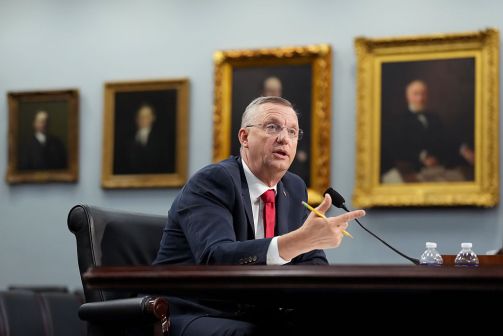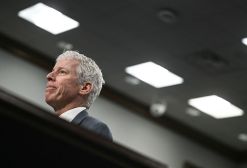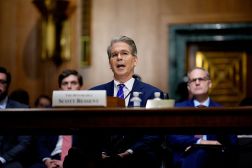Secretary Carter promotes DOD innovation continuity, peaceful transition
There will be a peaceful transition, the new Defense Department secretary will continue building relationships with America’s innovative private sector community and NATO should work with Trump.
These were all messages Defense Secretary Ash Carter’s delivered Monday at an event in Washington, D.C., at startup incubator 1776 — advocating for a peaceful transition of power and voicing his commitment to it, while quietly suggesting his successor take the mantel of some of his key efforts during his tenure.
“I am committed to an orderly transition to our new commander-in-chief, President-elect [Donald] Trump,” Carter said at an event at 1776. “We’re gonna do it to standard, we’re gonna do it warmly, we’re gonna do it to the best of our abilities so that we hand off things to the new administration in the best way we possibly can.”
Carter noted that the transition team has not yet arrived at the Pentagon but seemed to try to debunk any assumptions that the process is stalled, noting that “these practices, by the way, were settled upon weeks ago before the election was concluded. This is normal.”
During his time as secretary, Carter has focused on adopting technology from the private sector more quickly, and developing better relationships with Silicon Valley and other tech hubs to do so.
During his conversation at 1776, Carter noted that while the government is still a big force in developing technology, a lot of the innovators come from the outside. And throughout history, maintaining relationships with America’s innovators is what has kept the U.S. military at the top.
“A lot of our innovators don’t know all us, have never worked with us, even have an uneasy relationship with us, and so I need to reach out and try to build back a bridge to that community,” he said. “Get them inspired by our mission, change the way we do business enough that they are now reciprocal to the modern innovative lifestyle, the modern innovative practice.”
He added: “And so it’s not a birth right that we’re the best at protecting ourselves with technology.”
That’s something Carter said he has to work on, and so too will his successors.
“My predecessors did that and I think my successor and my successor’s successor will need to do the same,” he said.
He also cautioned that while nobody is going to “come close” to the U.S. in terms of comprehensive military power, “they’re all very competitive.”
“So it’s a competitive world even as it is competitive in the commercial world it is competitive in the security world, and if we relax our guard and we just assume that it’s a birth right to be the best, that gap’s going to close. I can’t allow that to happen,” he said.
Regarding NATO, Carter cautioned that he couldn’t speak for the future administration but would tell his allies “engage with the new administration. You know, work with them, stay committed to the values and the principles that we have stood for.”
President Barack Obama said recently Trump told him he is committed to continuing support for NATO.
Carter noted Monday in his message to allies, “remember that we have a lot of people who were trying to attack all of us collectively and we’re much better at protecting ourselves if we can find a way to work together.”
Carter’s remarks even touched on autonomous weapons, a hot topic as of late. He mentioned the Defense Department directive that “there always needs to be a human being involved in making those decisions” and noted “that’s an incredible important principle.”
Carter suggested that stance would continue.
“So there can be more and more automation built into a system, but when it comes to the very solemn job of using force to protect the American people… I’m absolutely certain that our public officials and our public will always insist that there be a human being involved in making those decisions,” he said.






